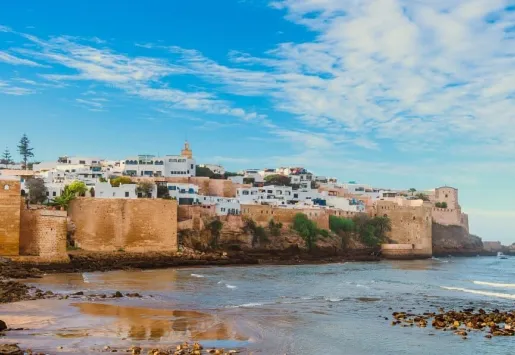
Morocco was hit by the largest earthquake on Friday night, resulting in a terrible human toll. At least 2,500 deaths have been reported as a provisional assessment, and the cost of repairs is estimated to be at least one billion euros. Despite this tragedy, experts have noted that few tourists canceled.
Ulrike Schuerkens, an anthropologist and professor at the University of Rennes-2, pointed out that the tourism industry in Morocco is expanding rapidly worldwide. It has become so significant that even natural disasters no longer significantly impact it.
In Japan and Thailand, tourism is surging despite disasters
Examples of extreme resilience are not uncommon. In 2015, Nepal was hit by a magnitude 7.8 earthquake, which claimed over 8,000 people. Yet, in 2016, tourist attendance in the country returned to its standards, with 753,000 arrivals (compared to 790,000 in 2014, according to data from the World Bank). Similarly 2011, Japan faced a devastating tsunami with over 15,000 lives lost. However, the country retained 72% of its 2010 tourist frequency the following year, and 2012 achieved the same attendance level as in 2010. Since then, visitors have soared, with Japan having grown from 8.3 million in 2012 to 31 million in 2019.
Another example is Thailand, which faced the biggest natural disaster of the twenty-first century with the tsunami of December 2004. This disaster resulted in over 250,000 missing people in Asia. Nevertheless, Thailand welcomed more tourists in 2005 than in 2003. The number of visitors has continued to soar, with 10 million visitors in 2003 growing to 40 million in 2019.
Following the earthquake, tourism consumption initially decreased due to infrastructure damage. However, tourists soon returned. The National Tourist Office in Morocco determined that no catastrophe could permanently reverse tourist' flow in the medium and long term.
Although disasters are tragic, their impact on tourism is often short-lived. Morocco experts predict attendance levels will return to pre-disaster levels within one to two months. Moreover, since tourist buildings have demonstrated their seismic efficiency, the consequences of this particular disaster should be even less severe. Fortunately, there were few injuries among tourists and very little infrastructure damage. No airports or hotels are closed in Marrakech.
Tourism, an essential sector for Morocco
Despite the damage suffered by Medina, the city's tourist hub, Marrakech is expected to continue attracting visitors due to its reputation and aura, according to Ulrike Schuerkens. Additionally, since the Moroccan tourist season lasts until April, it should recover. The tourism industry accounts for 7% of Morocco's GDP and has recovered well after the difficult Covid years. In the first half of 2023, the country's tourist office reported a 92% increase in attendance and a 69% increase in revenue compared to the previous year.
This kind of drama creates a strong media impact on the country and attracts people. Furthermore, it provides an opportunity to rebuild affected areas and develop tourist attractions. Morocco expects to welcome 13 million foreign tourists this year, surpassing its record year 2019. This includes over 4 million tourists who plan to visit Marrakech.













